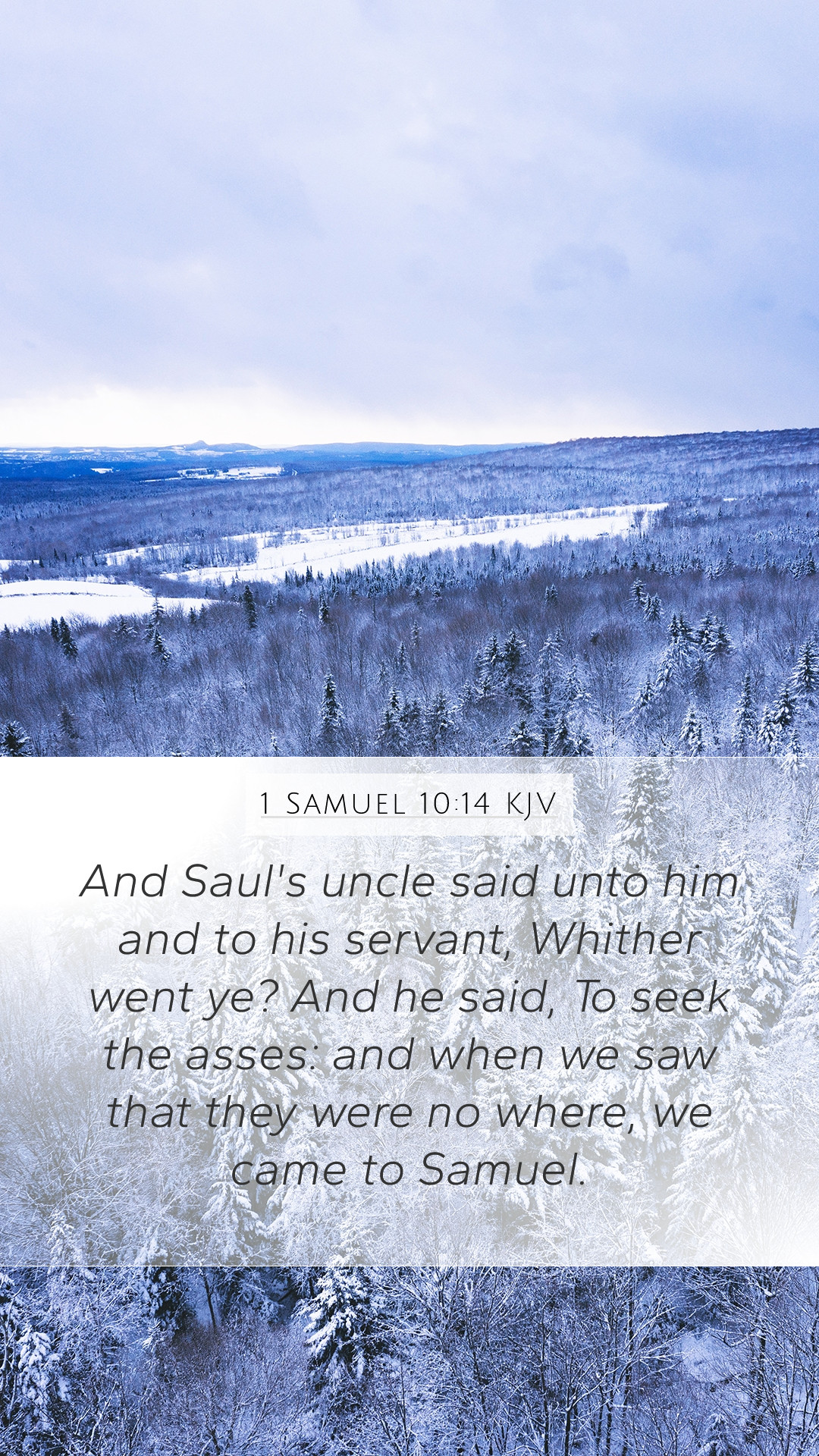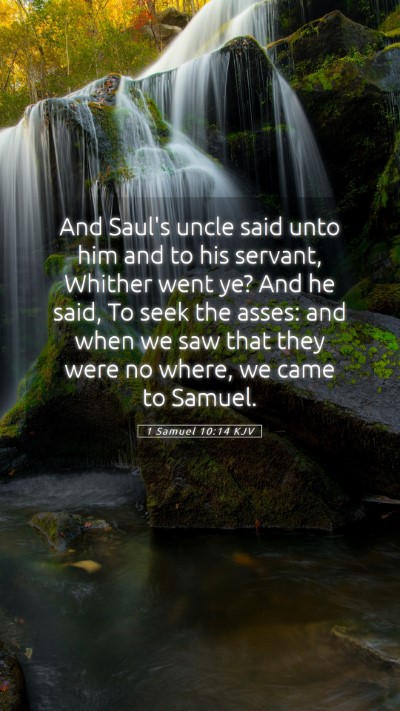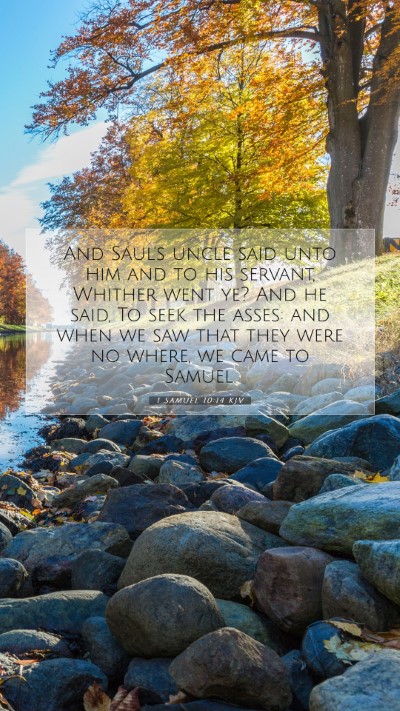Understanding 1 Samuel 10:14
1 Samuel 10:14 states:
"And Saul's uncle said unto him and to his servant, Whither went ye? And he said, To seek the asses: and when we saw that they were no longer, we came to Samuel."
Bible Verse Interpretations
This verse captures a moment of inquiry between Saul and his uncle, indicating a pivotal point in Saul's journey that leads to his anointing as king. The passage serves as both a narrative point and a theological insight into God's sovereign plan.
Contextual Background
Understanding the context surrounding 1 Samuel 10:14 requires examination of earlier chapters. Saul has been chosen by God to lead Israel, yet this process is gradual and involves confirmation through events that demonstrate God's hand in his life.
- Historical Significance: Saul is searching for lost donkeys, which represents God's providence in directing the future king's steps.
- Character Insights: Saul’s humble beginning contrasts sharply with his eventual reign as a king, serving as a profound lesson in divine selection and preparation.
- Divine Planning: This passage reflects on God’s ability to use ordinary circumstances to fulfill extraordinary purposes.
Analysis from Public Domain Commentaries
Renowned Biblical scholars offer insightful commentary on this verse:
- Matthew Henry: He emphasizes the idea that even in mundane tasks, like searching for lost animals, God orchestrates events towards a greater purpose. Henry suggests that Saul's journey was not merely about donkeys but a path divinely set towards kingship.
- Albert Barnes: Barnes discusses the interactions between Saul and his uncle, noting how this moment represents a key transitional phase in Saul's life. The ordinary context of searching for livestock becomes profoundly symbolic of God preparing Saul for a significant role in the redemptive history of Israel.
- Adam Clarke: Clarke provides analysis on the cultural aspects of the dialogue, highlighting that the inquiries about the donkeys reveal a communal concern and foreshadow Saul’s future leadership. He also contemplates the implications of this interaction in terms of familial relationships and societal roles.
Key Themes and Spiritual Insights
This verse invites reflection on several key themes integral to Bible verse study:
- God's Sovereignty: The seemingly trivial pursuit of lost donkeys sets the stage for God's greater work in anointing Saul.
- The Role of Providence: This moment illustrates how God's providence works behind the scenes in the lives of individuals.
- Importance of Dialogue: The conversation between Saul and his uncle emphasizes the need for relationships that support one's purpose and calling.
Application of the Verse
Applying the insights of 1 Samuel 10:14 to our daily lives encourages us to recognize God’s involvement in our ordinary experiences. It reminds us that even the smallest tasks may align with God’s grand purpose.
Practical Takeaways:
- Be attentive to God's whispered guidance in your daily tasks.
- Engage in open dialogue with those around you; it can reveal insights into your life's journey.
- Trust that God is orchestrating your steps toward His purpose, even when the path is unclear.
Related Bible Cross References
- 1 Samuel 9:15-16 - God's choice of Saul as king.
- 1 Samuel 10:1 - Samuel anoints Saul with oil.
- Proverbs 16:9 - The heart of man plans his way, but the Lord establishes his steps.
Conclusion
In summary, 1 Samuel 10:14 serves as a rich text for understanding God's providence and the preparation of leaders. As you explore Bible verse meanings and interpretations, consider how this passage can enhance your Bible study insights and deepen your understanding of Scripture.


